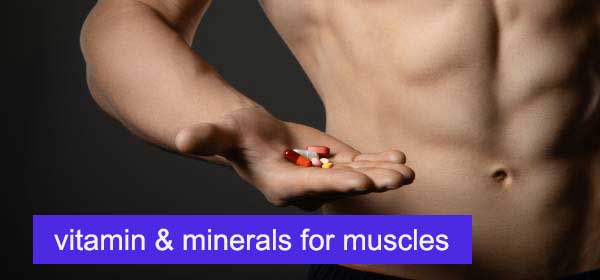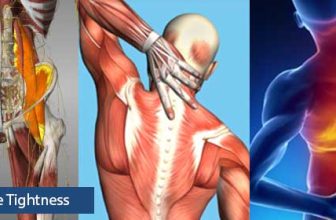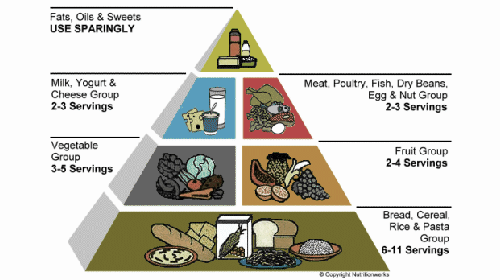
Nutrients Needed by Muscles and How to Get Them Easily
Vitamins and minerals play pivotal roles in sustaining optimal muscle health, ensuring strength, flexibility, and overall functionality. The following is a list of nutrients that our muscles need, and where to get them.
Minerals our Muscles Need:
CALCIUM: Muscle Conductor
Role of Calcium for Muscles: Integral to muscle contraction, calcium serves as a signaling molecule that enables muscle fibers to contract and relax.
Sources: Dairy products, leafy green vegetables (kale, broccoli), almonds, and fortified plant-based milk.
Muscle Insight: Calcium is a cornerstone for muscle function, playing a central role in the intricate dance of muscle contractions.
IRON: Oxygen Carrier
Role Iron for Muscles: Integral for transporting oxygen to muscles through hemoglobin, supporting energy metabolism.
Sources: Red meat, poultry, fish, lentils, and fortified cereals.
Muscle Insight: Iron deficiency can lead to fatigue and reduced oxygen delivery to muscles, impacting overall performance.
MAGNESIUM: Muscle Relaxation
Role of Magnesium for Muscles: Supports muscle relaxation by counteracting the effects of calcium. It’s also involved in energy metabolism.
Sources: Nuts, seeds, leafy green vegetables (spinach), whole grains, and legumes.
Muscle Insight: Adequate magnesium levels contribute to balanced muscle activity, preventing excessive contractions and promoting relaxation.
PHOSPHORUS: Energy Currency
Role of Phosphorus for Muscles: Forms a crucial component of ATP (adenosine triphosphate), the energy currency of cells.
Sources: Dairy products, meat, fish, poultry, and whole grains.
Muscle Insight: Phosphorus is vital for energy production, ensuring muscles have the fuel needed for optimal performance.
POTASSIUM: Fluid Balance
Role of Potassium for Muscles: Facilitates proper muscle contraction and helps maintain fluid balance within muscle cells. Potassium is sometimes referred to as an electrolyte because it carries a small electrical charge that activates various cell and nerve functions.
Sources: Bananas, oranges, potatoes, spinach, and beans.
Muscle Insight: Potassium, as an electrolyte, is vital for transmitting nerve signals and muscle contractions.
SODIUM: Facilitate Nerve Impulses
Role of Sodium for Muscles: Works with potassium to regulate fluid balance and facilitate nerve impulses.
Sources: Table salt, processed foods, and small amounts in natural foods.
Muscle Insight: Sodium and potassium maintain the delicate balance of ions, critical for nerve signaling and muscle contractions.
ZINC: Enzyme Function
Role of Zinc for Muscles: Facilitates the function of enzymes involved in muscle metabolism and repair.
Sources: Meat, dairy products, nuts, seeds, and legumes.
Muscle Insight: Zinc aids in the repair and maintenance of muscle tissues, supporting overall muscle health.
Vitamins our Muscles Need:
Vitamin A: Growth and Repair Maestro
Role of Vitamins A for Muscles: Supports muscle growth and repair, crucial for maintaining muscle tissue integrity.
Sources: Include sweet potatoes, carrots, spinach, kale, and liver in your diet.
Muscle Insight: Vitamin A is instrumental in the regeneration of muscle tissues after wear and tear, contributing to overall muscle health.
Vitamin B Complex: Muscle Repair and Formation
- B1 (Thiamine): Supports energy metabolism and nerve function.
Sources: Whole grains, legumes, nuts, and lean meats. - B2 (Riboflavin): Involved in energy production.
Sources: Dairy products, green leafy vegetables, eggs. - B3 (Niacin): Supports energy metabolism.
Sources: Meat, fish, whole grains, and legumes. - B6 (Pyridoxine): Essential for protein metabolism.
Sources: Chicken, turkey, bananas, potatoes, fortified cereals. - B12 (Cobalamin): Critical for red blood cell formation.
Sources: Meat, fish, dairy products, fortified plant-based foods. - Biotin and Pantothenic Acid: Support energy metabolism and muscle health.
Sources: Biotin in nuts, eggs, and certain vegetables; Pantothenic acid in meat, dairy, and whole grains.
Muscle Insight: The B complex vitamins form a powerhouse supporting energy production for optimal muscle function.
Vitamin C: Tissue Healing & Collagen Booster
Role of Vitamin C for Muscles: Vital for collagen synthesis, connective tissue healing, maintaining the structure of muscles, tendons, and ligaments.
Sources: Citrus fruits (oranges, lemons), strawberries, bell peppers, and leafy greens.
Muscle Insight: Collagen integrity is crucial for preventing injuries and ensuring the resilience of muscles during physical activities.
Vitamin D: Calcium Absorption
Role of Vitamin D for Muscles: Crucial for calcium absorption, essential for muscle contraction.
Sources: Bask in sunlight, indulge in fatty fish (salmon, mackerel), fortified dairy products, and plant-based alternatives.
Muscle Insight: Vitamin D deficiency may lead to muscle weakness and an increased risk of falls, emphasizing its importance for maintaining muscle strength.
Vitamin E: Against Oxidative Stress
Role of Vitamin E for Muscles: Acts as an antioxidant, shielding muscle cells from oxidative damage.
Sources: Embrace nuts, seeds (almonds, sunflower seeds), spinach, broccoli, and vegetable oils.
Muscle Insight: The antioxidant prowess of vitamin E supports muscle recovery by mitigating oxidative stress induced during exercise.
Vitamin K: Calcium Companion
Role for Vitamins K for Muscles: Supports calcium binding to proteins, crucial for bone health and indirectly affecting muscle function.
Sources: Leafy green vegetables (kale, spinach), broccoli, and certain vegetable oils.
Muscle Insight: Adequate vitamin K levels contribute to the bone-muscle connection, essential for overall musculoskeletal health.

